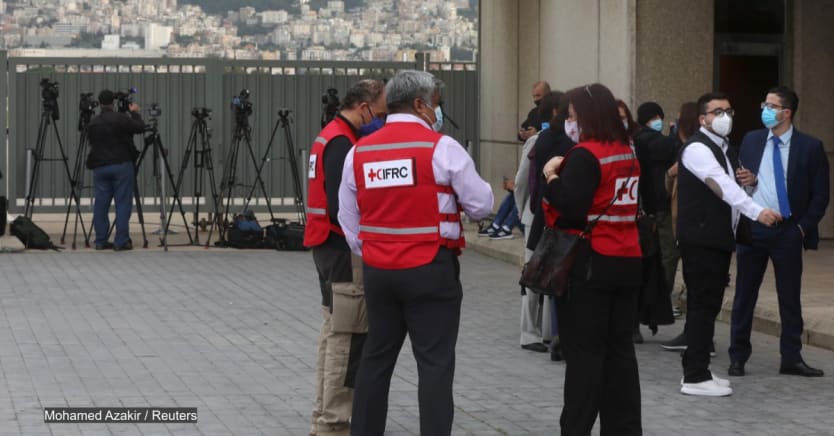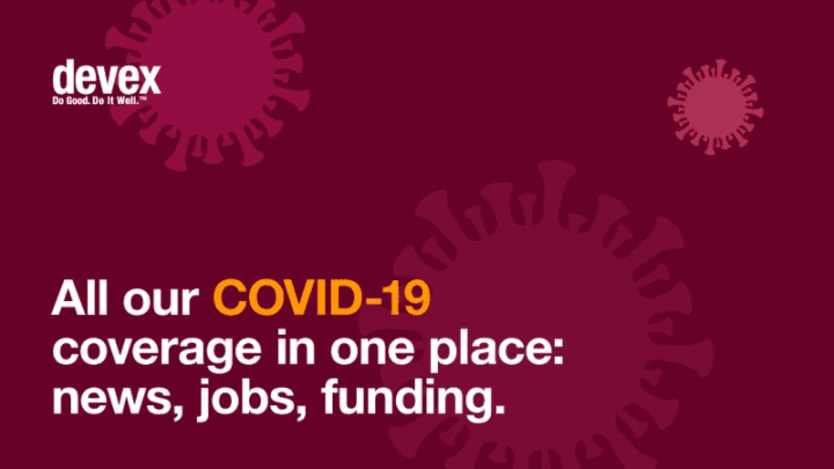Civil society to World Bank: Help us hold governments accountable in COVID-19 vaccine distribution

The World Bank supports the call for a people’s vaccine that is free to all at the point of use. The bank also supports calls for transparency in the decisions taken in countries with regard to COVID-19 vaccinations to reduce information barriers, and permit scrutiny and monitoring. But its senior health official also underscored the importance of respecting governments’ decisions on how best to roll out their vaccination campaigns.
“The thrust of it, in terms of we need everyone to have access to vaccines, we need to have distributed capacity, we need to … eliminate extreme poverty from this world. I'm totally with you on that,” said Muhammad Pate, World Bank global director for health, nutrition, and population, at a recent civil society event ahead of the World Bank Spring Meetings. The event discussed the role of the World Bank in ensuring universal and equitable COVID-19 vaccines for all.
“Countries and their leaders, their elected leaders, should be able to make choices. And those choices represent the will of their people. They have the legitimacy.”
— Muhammad Pate, global director for health, nutrition, and population, World Bank“[But] how we do that, it cannot be through a colonial mindset where you go and tell elected representatives what to do,” he said, adding that “we should respect what they choose, and they can be wrong, and where they are you engage with them.”
Members of civil society have called on the bank to use its influence in getting governments to be transparent in its deals with vaccine manufacturers such as on pricing, to help them hold governments accountable to ensure those most at risk get priority in COVID-19 vaccination programs, and to require governments to make the vaccines funded by the World Bank to be available for free.
“The World Bank again can leverage its position to ensure that even as we are thinking about financing to the last mile, it is making sure that vaccines for example will be free. The World Bank in its multiphase programmatic approach has not clearly stated that vaccines should be free,” said Allana Kembabazi, programs manager for the Right to Health Initiative for Economic and Social Rights in Uganda.
When an institution “as powerful as the World Bank [doesn't] state this and leave a lot of discretion to states,” it runs the risk of leaving the poor people behind in the vaccination program, and members of civil society face difficulties in playing its monitoring role, she said.
Pate said the bank recognizes the key role civil society plays in monitoring the rollout of COVID-19 vaccines. The bank has also signed an agreement with the International Federation of Red Cross and Red Crescent Societies to independently monitor the deployment of vaccines in Lebanon procured using World Bank financing.
The World Bank also supports the World Health Organization’s fair allocation mechanism, in which countries receive an initial allocation of doses of up to 20% of their population, and the recommendation by the WHO Strategic Advisory Group of Experts on Immunization values framework recommending initial doses be given to high-risk groups such as the elderly and front-line health workers.
Opinion: The unspoken COVID-19 vaccine challenges — distribution and corruption
Amid fevered speculation about which COVID-19 vaccine will be successful, one critical aspect has been left out of the equation: ensuring the right people get the right vaccine at the right time.
But Pate also said “countries and their leaders, their elected leaders, should be able to make choices. And those choices represent the will of their people. They have the legitimacy. That should not be undermined.”
The World Bank supports countries’ vaccine implementation plans, but according to the bank, details and choices are determined by each country, based on their specific requirements.
UNAIDS Executive Director Winnie Byanyima however argued the bank should negotiate how its financing, in particular its $12 billion financing for COVID-19 vaccines, is used in countries. She additionally said it should be provided in the form of grants, not loans.
“Once the money comes, it is so important that the bank negotiates methods of monitoring and accounting and ensuring that this money, actually, is spent first on those most in need of the vaccine. This is critical. It can't be left at, ‘it’s sovereignty. Take the money and spend it as you want,’” she said.

Search for articles
Most Read
- 1
- 2
- 3
- 4
- 5








